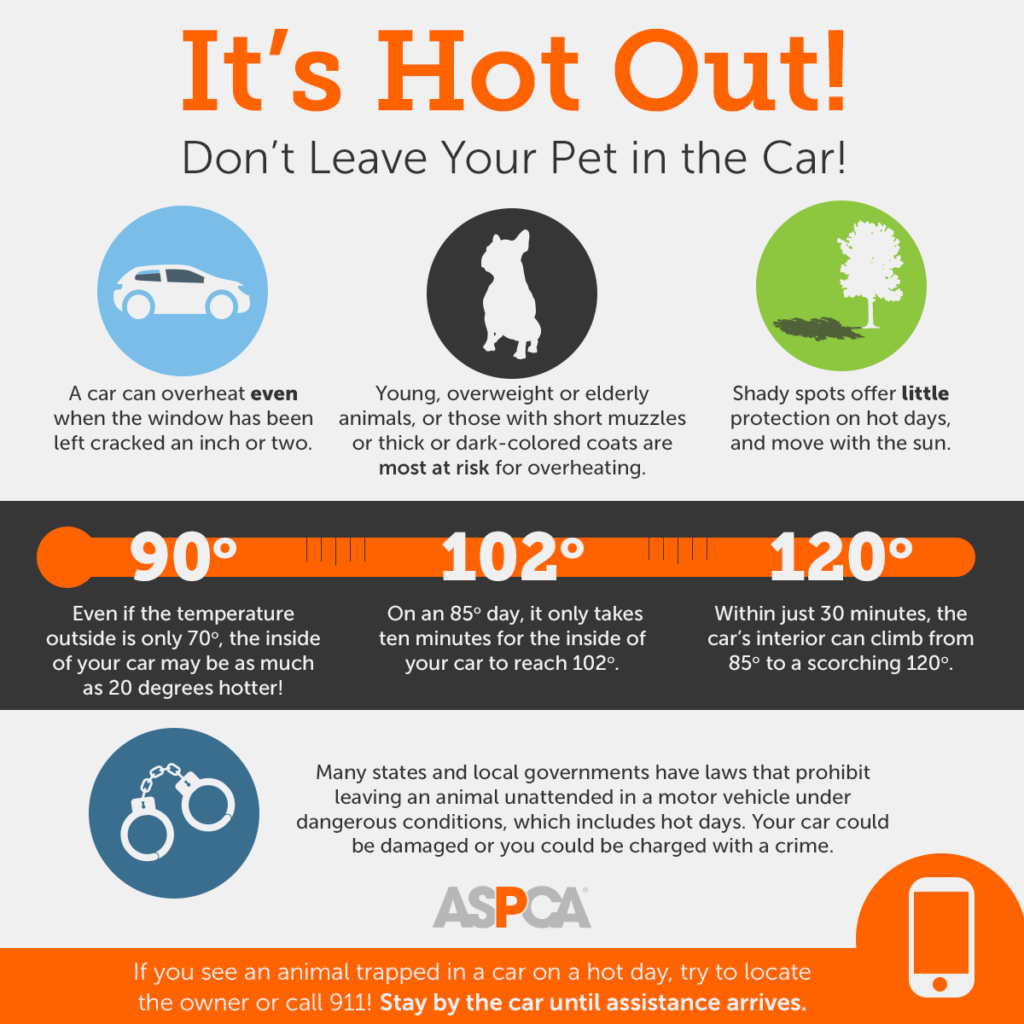Caring for pets in the Summer time:
5 Hot Tips
Our pets need special care and attention in the summer as the temperatures are rising. BCI’s Veterinary Assistant instructor lives in an area where temperatures can hit over 90 degrees in the summer and is aware of the importance to educate pet owners about the dangers pets face in hot temperatures. When it is hot outside, it is very important to keep pets indoors if they are not using the bathroom, to be careful on what they are walking on, and to make sure they are not left in the car at all.
If pets are left outside for too long in the heat or have excessive exercising when it is hot, they can develop a heat stroke. This is why it is also very important not to leave a pet in the car when it is extremely hot out even if the windows are rolled down. The temperature in a car can get twice as hot as the temperature outside.
Not all pets show the same signs of heat exhaustion and they have limited ability to deal with heat. To prevent pets from overheating, it is a Veterinary Assistant’s responsibility to make pet owners aware of the following precautions, provided by ASPCA experts:
1. Be Aware…
of how your pet can naturally deal with heat. Dogs release heat through their paw pads and by panting. This is important when walking your pet. Try keeping them off cement and asphalt that can get extremely hot and burn their paw pads. However, other animals that have flat faces, such as Pugs or Persian cats, cannot effectively pant to release sweat and therefore are more susceptible to heat strokes. Elderly or overweight pets are also at a higher risk. Knowledge of how your pet naturally deals with heat will help you gauge how your pet is doing on a walk or while playing outside.
2. Safely Guard…
against harmful bugs, such as ticks. During the summertime, fleas, ticks, and other insects are a greater risk to pets. These bugs carry diseases and many methods of protecting against these harmful insets are also a harmful to animals and cause problems for outdoor pets’ health. Only let your pet in short cut grass and pay attention to any pesticide or fertilizer warnings on other lawns or grassy fields. Talk to a Vet or Vet Assistant about safe ways to protect your pet from harmful insects.
3. Beware of antifreeze…
Antifreeze is a liquid that can be added to water to lower the freezing point. However in the summer months, this chemical can leak out of cars when they overheat, leaving puddles on the ground that small dogs have tried drinking. In fact, the sweet taste of antifreeze is tempting to dogs and cats, but when this toxic substance is ingested, it’s potentially lethal. Antifreeze poisoning is one of the most common forms of poisoning in small animals. Do not keep antifreeze where a pet could accidentally find it and just to be safe, do not let your pets drink from any puddles.
4. Sunscreen for pets…
Some pets, particularly those with short fine hair and pink skin, can be susceptible to sunburn. Talk to your veterinarian or Vet Assistant about which types of sunscreen are safest on your pet’s skin. Do not use sunscreen or insect repellents that are not designed specifically for use on animals. Even if the sunscreen is pet-friendly, you should still keep it stored where the pet cannot access it. The ASPCA says ingesting certain sunscreens can cause drooling, vomiting, diarrhea, excessive thirst and lethargy in pets.
5. Practice water safety…
Although it’s fun to bring your pet to the beach or pool to stay cool together, always keep a close eye on your pet when they’re in or near the water. Even a strong swimmer could have trouble, especially if the pet is already affected by heat exhaustion. For more risky summer adventures with your dog, like boating, look into a pet life preserver.















